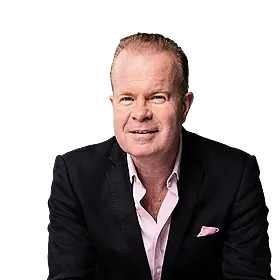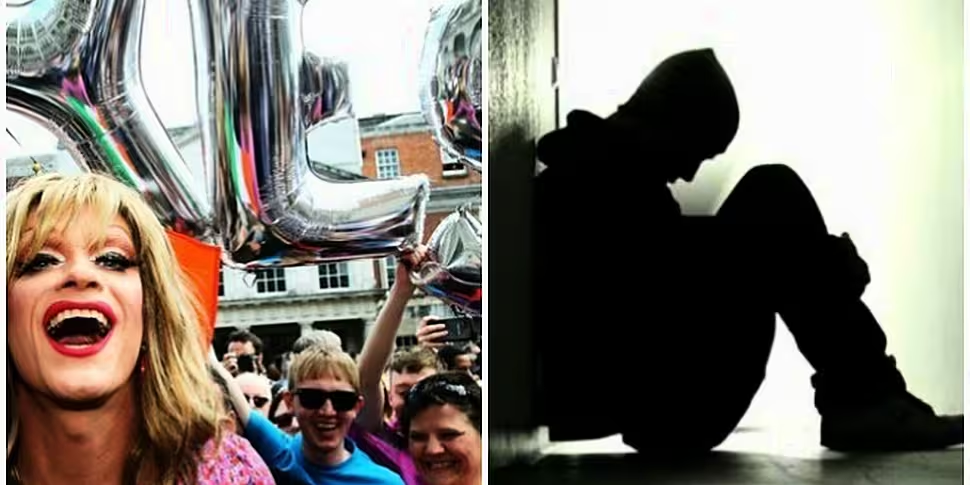All of us last year witnessed an extraordinary moment for equality in Ireland and for LGBT people and their families in Ireland when same-sex marriage became legal. It would be understandable, given the warmth of the Marriage Equality campaign and the scale of the Yes result, to expect that we can now move on from campaigning on LGBT rights to addressing other serious issues in Irish society. However, in a report launched today by former President Dr Mary McAleese, we see that all is certainly not well for Ireland's LGBTI community.
The LGBTIreland Report shows that a majority of lesbian, gay, bisexual, transgender and intersex (LGBTI) people aged 26 and over are doing well, report good self-esteem and are proud of their identity. However, these positive findings are not shared across all age groups. We found that LGBTI people still face considerable barriers to good mental health - including bullying at school, fear of rejection and discrimination, harassment and violence, and negative attitudes and stereotypes.
Some of the findings are harrowing and show higher levels of self-harm and suicidal behaviour among LGBTI teenagers along with worrying levels of severe and extremely severe stress, anxiety and depression. Being LGBTI in itself doesn’t increase the risk of poor mental health. It’s the experience of being bullied, being rejected or being harassed because you are LGBTI that leads to higher levels of self-harm and attempted suicide.
Speaking at today’s launch of the report, Dr Mc Aleese expressed her horror at some of the findings, saying “this scholarly report is as essential and revealing as it is horrifying. The ongoing damage is undeniable. That it involves so many young people is tragic. That it is solvable is the good news”.
The findings on LGBTI teenagers are stark:
- 56% had self-harmed
- 70% had suicidal thoughts
- 1 in 3 had attempted suicide.
Compared to the My World National Youth Mental Health Study, LGBTI teenagers in this study had:
- 2 times the level of self-harm
- 3 times the level of attempted suicide
- 4 times the level of severe or extremely severe stress, anxiety and depression.
As well as differences across age groups, The LGBTIreland Report also found differences among LGBTI people with intersex, transgender and bisexual people reporting poorer mental health outcomes compared to gay men and lesbian women. This reflects the fact that more progress has been made on reducing homophobia in Ireland than biphobia and transphobia.
It is important for LGBTI young people and their families to know they are not alone. There are LGBTI youth and community services across the country. Schools, mental health services and other support agencies are being increasingly proactive about creating safe and supportive environments for the LGBTI people in their care. The report highlights the urgent need to accelerate this work. We look forward to working with these partners to achieve a better Ireland for LGBTI children to grow up in.
The national suicide reduction strategy ‘Connecting For Life’ has identified the LGBTI community as a priority group for suicide prevention and is core to how we are going to resolve the challenges revealed in the study. The findings in the report will be critical in designing and evaluating the best approaches to suicide prevention among LGBTI people in Ireland.
It is clear that stigma, rejection and discrimination are still a reality for many LGBTI people in Ireland. These unnecessary and preventable stresses that LGBTI children and teenagers still encounter as they grow up are reflected in the higher levels of self-harm and attempted suicide uncovered in the study.
However, the progress achieved for Irish LGBTI people in 2015 gives us solid ground for the urgent work - necessary in our schools, communities, workplaces and in our homes - to ensure that all LGBTI people are equal, safe, included and valued across Irish society.
Odhrán Allen is Director of Mental Health at GLEN
Copies of the report are available at www.glen.ie
Support for LGBTI people and their families is available at www.lgbt.ie, www.teni.ie, www.yourmentalhealth.ie or www.lgbtmentalhealth.ie
To talk to someone in confidence call the LGBT Helpline on 1890 929 539
For a full list of LGBTI youth services around the country see www.belongto.org









